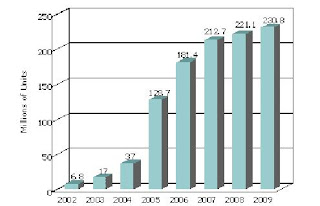Generation Y "Millenials" (age 18-30) are most likely to turn to libraries for problem-solving information of all generational groups, say researchers at the Pew Internet & American Life Project.
Faced with a problem in the past two years that they needed to address, about one in eight adults (13 percent) say they turned to their local public library for help and information. And it appears computer availability is a reason.
Some 65 percent of adults who went to a library for problem-solving help said that access to computers, particularly the Internet, was key reason they go to the library for help.
Also, 62 percent of adults who went to the library for help actually used the computers at the library. At the same time, 58 percent of those with problems to solve said they used library reference books.
About 42 percent of those with problems to solve said they read library newspapers and magazines.
The problem most likely to be cited by those who went to libraries seeking information was an educational issue such as making a decision about a school, getting more training, or finding financial resources to do so. That reason was cited by 20 percent of the adults who went to libraries for help.
Asked whether they would go to a library in the future to help them solve problems, 40 percent of Gen Y respondents said it was likely they would go, compared with 20 percent of those over age 30.
About 53 percent of American adults report going to a local public library in the past 12 months. The profile of library users shows an economically upscale, information-hungry clientele who use the library to enhance their already-rich information world, Pew researchers say.
Public library patrons are generally younger adults, those with higher income and
education levels, and those who are Internet users. Parents with minor children living at home also are very likely to be patrons. There are no significant differences in library usage by race or ethnicity, Pew researchers say.





